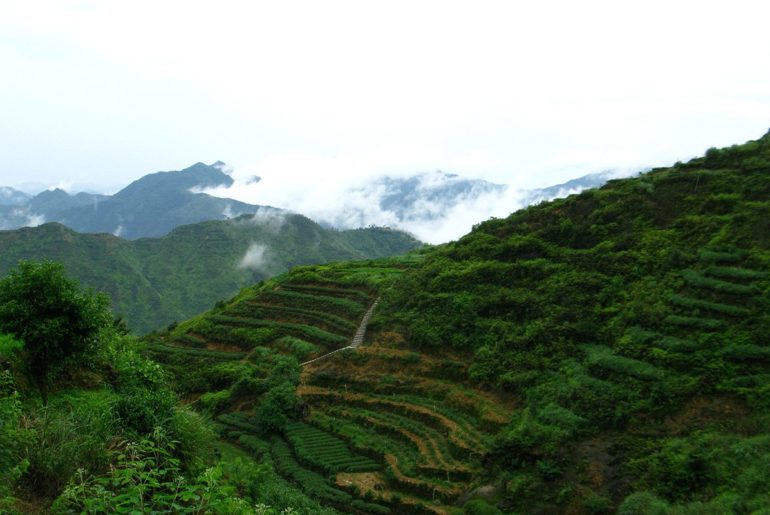The words ‘rare teas’ have become common place in the greater industrialized tea world. Anything but CTC or machine made teas have been called ‘rare teas’ by marketers, justifying such usage to mean ‘not infinitely available nor blended into blandness’. But in the artisan tea world, rare teas are single lot, often made in small batches of less than 100 lbs.. In addition, the rarity must be attributed to conditions that limit possible additional production, either by nature or nurture. Some are dependent on a confluence of conditions, such as the Leaf Hopper bitten Taiwan Beauty of Taiwan. Some are grown on such high elevations, like the Dayuling at 2,500 meters or higher, that by nature of the limited growing areas, the teas are few in yield. Still others, like many Phoenix teas, are harvested from single, antiquated tea trees that are hundreds of years old.
In the Yunnan region of China, in the southern most part called Xishuangbanna, live 1,500 year or older trees in the wild forests. A single tree might produce about 30 lbs. of leaves, if that. These tea leaves are not cultivated, but foraged. Only the native indigenous Bulang folks who inhabit these mountains know where the trees are. The foraged leaves are then given to the artisan tea producers to ferment into ‘Shu’ Pu-erh, or simply dried for long term slow aging ‘Sheng’ Pu-erh. No one knows how long these original tea trees will live, since the world of 1,500, or nearly even 2,000 years ago, when they were born was environmentally very different. The people of Yunnan were already producing Pu-erh tea at that time for trade across the Silk Road, as well as supplying the ubiquitous everyday tea drinking habits of the rest of China and Tibet as far back as 30 B.C.
Today, climate and man-made environmental issues have caused many old trees to perish. A piece of living history, once gone, can never be replicated. The fact that we can drink tea made from the leaves of trees from such antiquity, makes this Sheng Pu-erh more than peerless even in the world of rare and special teas!









Comments are closed.